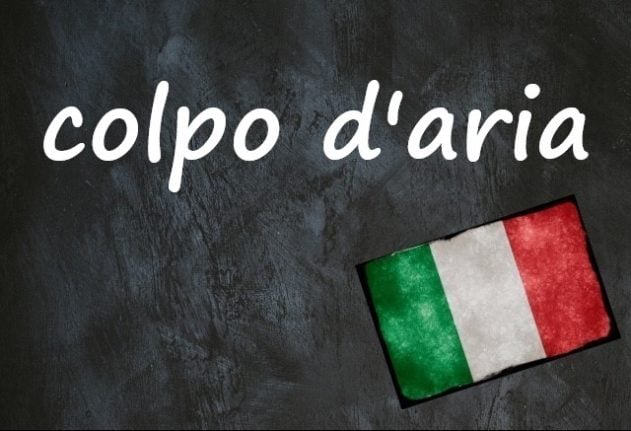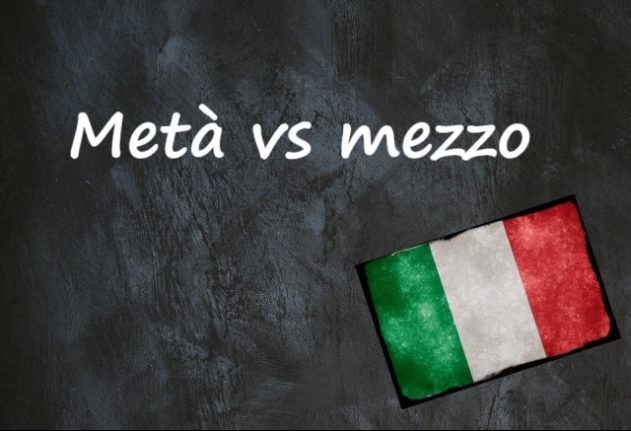The colder months in Italy may have many delights, but this time of year also brings its own particular dangers – at least according to Italians.
Don’t be surprised if you find yourself being warned about un colpo d’aria: literally a ‘hit’ or blast of air, more colloquially a draft, and in the Italian imagination the cause of everything from a stiff neck to a headache to indigestion.
The term springs from the belief that sudden changes in temperature are bad for the health, and the closest equivalent in English would be the equally vague “chill” that your grandma always warned you about.
– Mettiti una giacchetta o ti prenderai un colpo d’aria!
– Wear a jacket or you’ll catch a chill!
Common ways to fall victim (prendere un colpo d’aria) might include failing to wrap up warm as soon as the temperature drops below 25 degrees Celsius, leaving the house with wet hair, opening a window while sweaty, or sitting too close to the air conditioning.
According to one Italian health site, symptoms can include: redness of the eyes, ear pain, muscle contractions and, for the especially unfortunate, un colpo di strega – literally “a strike of the witch”, it describes a back strain, to which you might be extra vulnerable if you attempt any sudden movements while dangerously chilled by air.
The vast collection of symptoms attributed to chills explains why you might hear Italians specifying which part of their body is bearing the brunt.
– Ho preso un colpo d’aria…
… all’orecchio.
… alla schiena.
… agli occhi.
… al collo.
– I caught a chill in my ear/my back/my eyes/my neck.
It’s basically a way to say that you have an unexplained ache or pain – and if you don’t know the exact cause, why not blame it on the air?

It looks like some Italians are becoming suspicious of whether the colpo d’aria really exists.
Recommended cures include hot baths, camomile tea and breathing in steam.
The tried and tested prevention, meanwhile, is la maglia della salute (the ‘health shirt’), a vest or undershirt that keeps your chest safely covered.
Fear of the colpo d’aria also explains why you’ll see Italians in scarves and puffa jackets while those of us originally from cooler climates are still happily in short sleeves.
Dressing for the season, not the actual weather, is seen as vitally important when colpo d’aria could hit at any moment.
If you’ve ever felt like you read a different weather forecast to the one your Italian friends seem to have dressed for, now you know why.
Do you have an Italian word you’d like us to feature? If so, please email us with your suggestion.
This article was originally published in 2018.



 Please whitelist us to continue reading.
Please whitelist us to continue reading.
Member comments